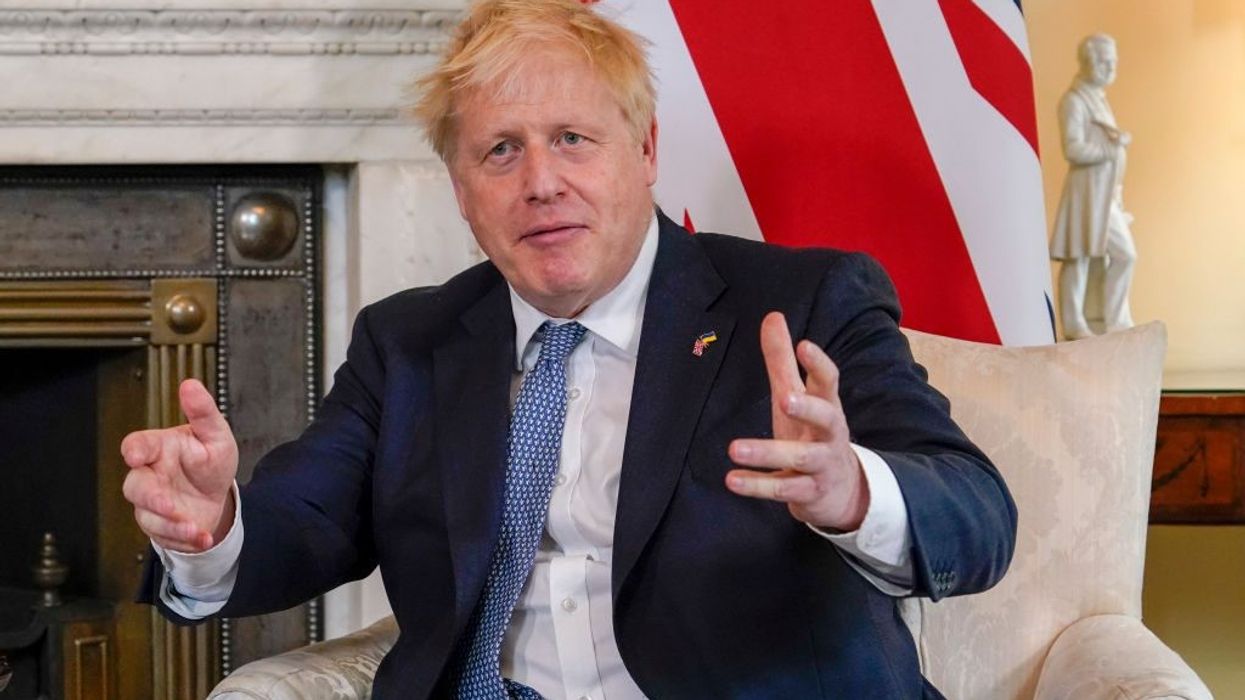UK prime minister Boris Johnson convened his cabinet on Tuesday (7), vowing to "get on with the job" after surviving a confidence vote of Conservative MPs that has left him severely weakened.
The beleaguered leader has claimed that Monday (6) evening's dramatic ballot, which saw 211 Tory party lawmakers support him remaining prime minister but 148 vote against, was a "decisive result".
But most critics and commentators disagreed, arguing his authority has been hugely undermined and his days in Downing Street are numbered.
The Times called him "a wounded victor" while his former employers at the Daily Telegraph branded it "a hollow victory that tears Tories apart".
The vote -- just over two years after the Brexit architect won a landslide general election victory -- was brought after a string of scandals that have left the Conservative party's standing in tatters.
Chief among them was the "Partygate" controversy over lockdown-breaking events at Downing Street, which caused public outrage and saw him become the first serving UK prime minister to have broken the law.
'Continue delivering'
Johnson, 57, needed the backing of 180 of the 359 Conservatives MPs to survive the vote. Defeat would have meant the end to his time as party leader and prime minister.
Most of Johnson's cabinet publicly backed him in the secret ballot, but more than 40 per cent of the parliamentary party -- and almost certainly a majority of backbenchers -- did not, with the rebels coming from various Tory factions.
Under current party rules, he cannot be challenged again for a year, which leaves little time for any new leader to emerge before the next general election due by 2024.
In previous Tory confidence ballots, Margaret Thatcher and Theresa May scored better than Johnson yet despite narrowly winning their votes, both ultimately resigned after deciding that their premierships were terminally damaged.
Johnson has steadfastly refused to resign over "Partygate" and shows no sign of doing so now.
"Today, I pledge to continue delivering," Johnson said before the cabinet meeting.
"We are on the side of hard-working British people, and we are going to get on with the job."
'Not a win'
Johnson has spent months fighting for his political survival after a series of controversies culminated in the "Partygate" saga.
Various opinion polls have shown the public think he lied about the scandal and should resign.
His Tories have lost several once-safe seats in by-elections and scored dismally in recent local elections.
They are expected to lose two upcoming by-elections later this month, including one in a previously rock-solid Conservative constituency.
Johnson was booed last Friday by sections of an ardently patriotic crowd gathered outside St Paul's Cathedral before a religious service for Queen Elizabeth II's Platinum Jubilee.
Rival parties sought to capitalise on Monday's vote. The smaller opposition Liberal Democrats urged rebels to resign from their party and sit as independents while Johnson remained leader.
However, Conservative MPs who voted against him were highly unlikely to take up the suggestion and appeared to be biding their time.
"This is far from a conclusive result -- it's not a defeat, but it's not a win," said Tory lawmaker Tobias Ellwood, who has been calling for Johnson to resign since February.
He said he accepted Monday's result "for the moment".
'Honourable exit'
Johnson wants to move on with a series of speeches, policy announcements and high-profile appearances on the world stage this month.
That includes plans for a joint speech with finance minister Rishi Sunak to tackle a worsening cost-of-living crisis.
He is expected to head to Rwanda for a meeting of Commonwealth leaders, then go to Germany and Spain for G7 and NATO summits.
Speculation is also mounting that he may reshuffle his senior ministerial team to reward those who backed him.
But many questions if he can recover his authority and voters' trust.
Conservative grandee William Hague -- a former party leader -- argued he should "look for an honourable exit".
"Words have been said that cannot be retracted, reports published that cannot be erased, and votes have been cast that show a greater level of rejection than any Tory leader has ever endured and survived," he wrote in The Times.
"Deep inside, he should recognise that, and turn his mind to getting out in a way that spares party and country such agonies and uncertainties."
(Reuters)













